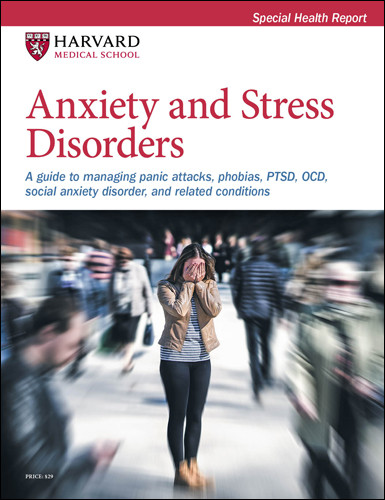Can your blood tests predict your future risk of stress, anxiety, or depression?
News briefs
- Reviewed by Anthony L. Komaroff, MD, Editor in Chief, Harvard Health Letter; Editorial Advisory Board Member, Harvard Health Publishing

When the doctor says your blood sugar or cholesterol levels are off, you might worry about diabetes or heart disease. But a large study published online April 2, 2024, by JAMA Network Open suggests that abnormal levels of those biomarkers might also signal a risk for developing chronic stress, anxiety, or depression years later. Researchers at facilities around the world, including Harvard, analyzed the health information of more than 211,000 people in Sweden. At the start of the study, participants were middle-aged (42 on average) and free of chronic stress or mood disorders. Each person was tested for levels of blood sugar and fats, such as triglycerides and HDL (good) cholesterol. After 21 years, people who'd had high blood sugar and high triglycerides at the start of the study were more likely to have developed chronic stress or mood disorders by age 60, compared with people who'd had low or normal blood sugar levels and triglycerides. On the flip side, people who'd had high levels of HDL were less likely to develop chronic stress or mood disorders compared with people who'd had low levels of HDL. This study doesn't answer the question of whether abnormal levels of sugar and fats lead to chronic stress, anxiety, or depression, or if the connection is more complicated or involves other factors. However, we know for sure that it's important to keep levels of sugar and fats normal to reduce the risk for many diseases.
Image: © Westend61/Getty Images
About the Author

Heidi Godman, Executive Editor, Harvard Health Letter
About the Reviewer

Anthony L. Komaroff, MD, Editor in Chief, Harvard Health Letter; Editorial Advisory Board Member, Harvard Health Publishing
Disclaimer:
As a service to our readers, Harvard Health Publishing provides access to our library of archived content. Please note the date of last review or update on all articles.
No content on this site, regardless of date, should ever be used as a substitute for direct medical advice from your doctor or other qualified clinician.
















